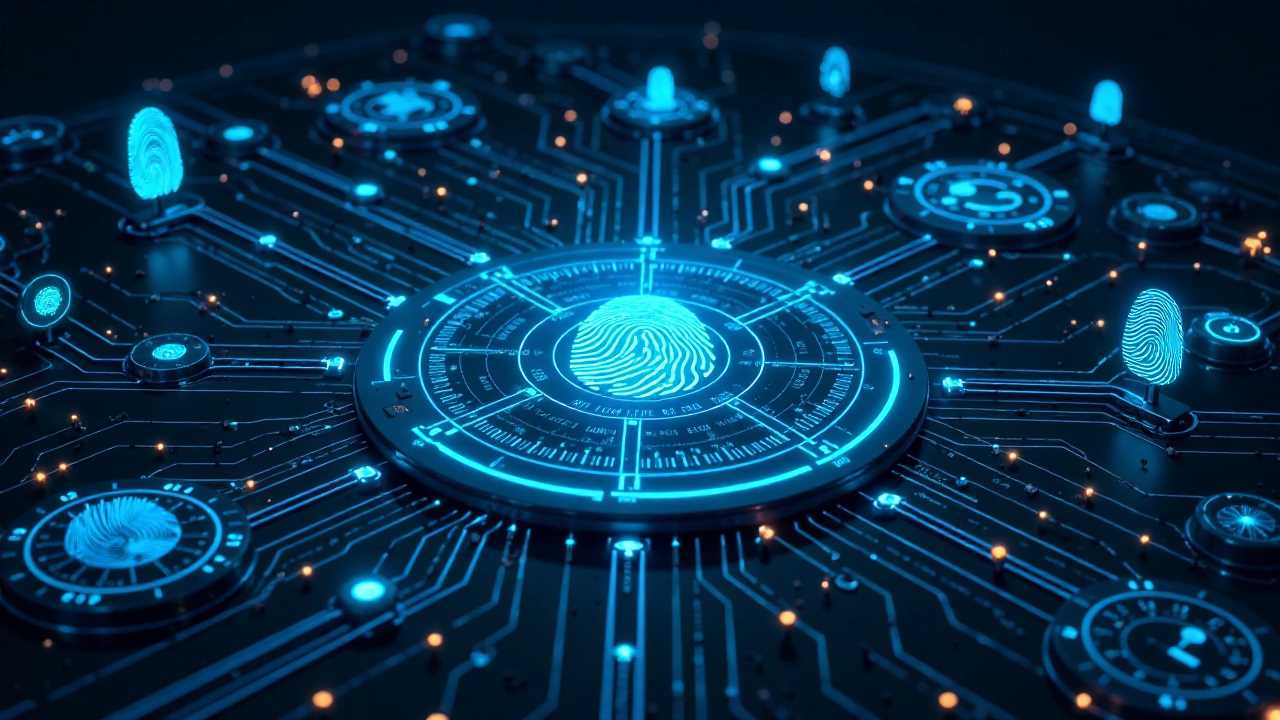
Understanding Biometric Security Systems
Biometric security systems represent a significant advancement in the field of authentication and access control. These systems utilize unique biological traits, such as fingerprints, facial recognition, and iris patterns, to verify an individual's identity. By leveraging these distinct characteristics, biometric systems provide a level of security that traditional methods, like passwords and PINs, cannot match. As we navigate an increasingly digital world, the importance of robust security measures cannot be overstated.
The Role of Authentication in Biometric Systems
Authentication is the process of verifying the identity of a user or system. In the context of biometric security systems, this process is streamlined and enhanced through the use of advanced technology. Unlike traditional authentication methods that rely on something the user knows (like a password) or possesses (like a key), biometric systems rely on inherent characteristics that are unique to each individual. This shift not only increases security but also improves user convenience, as individuals no longer need to remember complex passwords or carry physical keys.
Advanced Encryption Techniques
To ensure the security of biometric data, encryption plays a vital role. Biometric information is sensitive and must be protected from unauthorized access. Modern biometric systems employ sophisticated encryption algorithms to safeguard this data. By encrypting biometric templates, organizations can prevent data breaches and ensure that even if the data is intercepted, it remains unreadable to unauthorized users. This level of protection is crucial in maintaining data privacy and building trust with users.
The Importance of Sensors in Biometric Systems
At the heart of biometric security systems are sensors that capture biometric data. These sensors vary in type and technology, including optical sensors for fingerprint recognition, infrared sensors for facial recognition, and capacitive sensors for touch-based identification. The accuracy and reliability of these sensors are paramount, as they directly impact the effectiveness of the biometric system. High-quality sensors can reduce false acceptance and rejection rates, ensuring that only authorized individuals gain access.
Identification and Its Impact on Security
Identification is a critical function of biometric security systems. Unlike authentication, which verifies a user's identity, identification involves recognizing an individual from a database of enrolled users. This capability is particularly useful in high-security environments, such as airports and government buildings, where quick and accurate identification is essential. Biometric systems can process and match biometric data in real-time, significantly enhancing security measures and response times.
Access Control: A New Standard in Security
Access control is another area where biometric security systems excel. By integrating biometric authentication into access control systems, organizations can ensure that only authorized personnel can enter restricted areas. This level of control is particularly beneficial in sectors such as finance, healthcare, and government, where sensitive information and assets must be protected. Biometric access control systems can be tailored to meet specific security needs, providing flexibility and scalability for organizations of all sizes.
Data Privacy Concerns and Solutions
As biometric security systems become more prevalent, concerns regarding data privacy have emerged. Organizations must handle biometric data with the utmost care to prevent misuse and ensure compliance with data protection regulations. Implementing strict data governance policies, conducting regular audits, and utilizing encryption are essential steps in safeguarding biometric information. Additionally, organizations should be transparent with users about how their biometric data will be used and stored, fostering trust and confidence in the system.
The Future of Biometric Security Systems
The future of biometric security systems looks promising, with continuous advancements in technology paving the way for more secure and efficient solutions. Emerging technologies, such as artificial intelligence and machine learning, are expected to enhance the accuracy and speed of biometric identification and authentication processes. As these systems evolve, they will become more integrated into everyday life, from smartphones to smart homes, further solidifying their role in enhancing security.
In summary, biometric security systems are revolutionizing the landscape of authentication, access control, and data privacy. By utilizing unique biological traits, these systems offer unparalleled security and convenience. As technology continues to advance, the adoption of biometric systems will likely increase, making them a standard in security practices across various industries. Organizations must prioritize the implementation of robust biometric systems to protect sensitive information and maintain trust with their users.
 Business & FinanceHealth & MedicineTechnologyLifestyle & CultureScience & EnvironmentWorld NewsPrivacy PolicyTerms And Conditions
Business & FinanceHealth & MedicineTechnologyLifestyle & CultureScience & EnvironmentWorld NewsPrivacy PolicyTerms And Conditions
